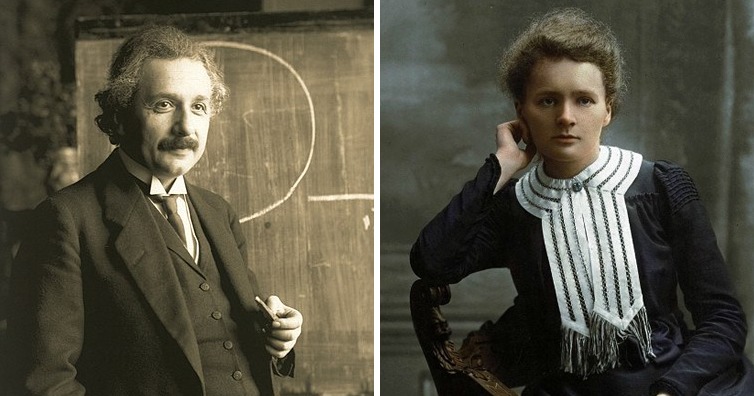In 1911, a 32-year old man named Albert Einstein was applying for a professor position at the ETH Zurich (Swiss Federal Institute of Technology). But even though he was a well known professor at the prestigious Charles-Ferdinand University in Prague, some officials in ETH weren’t yet convinced of his suitability.
So, young Einstein turned to two of the world’s most respected scientists for recommendation letters: Henri Poincaré and Marie Curie. Of course, the letters arrived and Einstein moved to Zurich in a couple of months.
Here they are: (the article continues after the ad)
From Henri Poincaré:
Nov. 1911
My dear colleague,
Mr Einstein is one of the most original thinkers I have ever met. In spite of his youth, he has already achieved a very honourable place among the leading savants of his age. What one has to admire in him above all is the facility with which he adapts himself to new concepts and knows how to draw from them every possible conclusion. He has not remained attached to classical principles, and when faced with a problem of physics he is prompt in envisaging all its possibilities. A problem which enters his mind unfolds itself into the anticipation of new phenomena which may one day be verified by experiment. I do not mean to say that all these anticipations will withstand the test of experiment on the day such a test would become possible. Since he seeks in all directions one must, on the contrary, expect most of the trails which he pursues to be blind alleys. But one must hope at the same time that one of the directions he has indicated may be the right one, and that is enough. This is indeed how one should proceed. The role of mathematical physics is to ask the right questions, and experiment alone can resolve them.
The future will show more and more the worth of Mr Einstein, and the university intelligent enough to attract this young master is certain to reap great honour.
Your most devoted colleague,
Poincaré
—————————————-
From Marie Curie:
Paris, November 17, 1911
Dear Sir,
I have just received your letter, in which you asked for my personal impression of Mr. Einstein, whom I recently had the pleasure to meet. You also say that Mr. Einstein wishes very much to return to Zurich and could soon have the opportunity to do so.
I have often admired the papers published by Mr. Einstein on issues dealing with modern theoretical physics. Moreover, I believe that theoretical physicists agree that these papers are of the highest order. In Brussels, where I participated in a scientific conference in which Mr. Einstein also took part, I was able to appreciate the clarity of his mind, the extent of his documentation and the depth of his knowledge. If we consider that Mr. Einstein is still very young, we are right to have great hope in him, and to see him as one of the leading theoreticians of the future. I think that the scientific institution willing to give Mr. Einstein the work he desires, either by appointing him an existing chair or by creating for him the chair in the conditions he deserves, could be greatly honored by such a decision and would certainly be providing a great service to science.
If, by offering my opinion, I could by a small measure contribute to the solution desired by Mr. Einstein, I would be extremely pleased.
Accept, I beg of you, dear Sir, the assurance of my best wishes.
M. Curie
Faculty of Sciences, Paris
(General Physics Laboratory)
If you like what you read, then you will definitely love this one: Marie Curie’s Notebooks Will Stay Radioactive For Another 1,500 Years
Photo: Albert-Einstein-Archiv / Ferdinand Schmutzer, The Maryland Science Center
Photoshop: I’m A Useless Info Junkie
Sources: One of the most original thinkers I have ever met | Einstein: His Life and Universe

